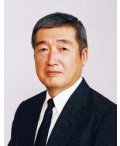Foreword by 3rd Director (April 2010 - May 2018)
Updated: 2021/11/19
 Industrial development and the recent explosive increase in the global population have given rise to a number of problems that have become critical social issues for the 21st century, including shortages of energy and resources, as well as environmental changes, represented by global warming. There has been an increasing demand for reliable future projections based on an accurate understanding of these current conditions, and for the presentation of measures for resolving these problems.
Industrial development and the recent explosive increase in the global population have given rise to a number of problems that have become critical social issues for the 21st century, including shortages of energy and resources, as well as environmental changes, represented by global warming. There has been an increasing demand for reliable future projections based on an accurate understanding of these current conditions, and for the presentation of measures for resolving these problems.
We define the “Humanosphere” as comprising four “spheres” ; outer space, the atmosphere, the “forest-sphere,” and the human living environment, all of which are vital to human existence. Our goal is to promote the fundamental sciences and technologies that are essential to understanding the various phenomena that occur in these four spheres, and to building a “Humanosphere” that is capable of sustainable development. As part of an urgent scientific mission, we have been focusing on four main scientific missions: “(l) Environmental measurement and regeneration of the Earth” ; “(2) Conversion and use of solar energy” ; “(3) Use of outer space environments” ; and “(4) Development of recyclable materials.” We are also working to foster the next generation of young researchers through participation in these world’s most advanced research activities.
The Research Institute for Sustainable Humanosphere (RISH) was established within Kyoto University in 2004, when Japanese national universities were given corporate status. RISH began full-scale activities the following year, as a university-affiliated research institute available for common use by researchers from across the country. RISH’s collaborative usage functions expanded dramatically during the period of the first mediumterm plan in 2004-2009. When the Institute was first established, inter-university collaborative research activities began at three research facilities, but five large-scale facilities were added one after another, and the “Development and Assessment of Sustain able Humanosphere (DASH)” system was newly introduced in 2007, bringing the total number of collaborative usage facilities to nine. A Humanosphere database was also constructed to archive and make available the scientific and technical achievements at RISH, and many Humanosphere symposiums are held as a venue for exchanging ideas and making these achievements known to a broader segment of the academic and scientific community.
Starting in 2010, RISH has become the approved Joint Use/Research Center in the field of Humanosphere sciences. Since its establishment, RISH has undertaken activities in three main fields: (i) Shared use of large-scale facilities; (ii) Open use of databases; and (iii) Promotion of collaborative projects. The Department of Collaborative Research Programs and the Center for Exploratory Research on Humanosphere share the responsibilities of collaborative use and joint research, providing mutual stimulation as two of RISH’ s core facilities in the promotion of Humanosphere sciences. In the future, in addition to continuing its activities in fields (i) and (ii), where significant results have already been achieved so far, we will take advantage of our certification as the Joint Use/Research Center to place a greater focus on the promotion of collaborative projects as well, proposing and undertaking Flagship joint research projects.
We will continue to actively expand on educational and research activities in collaboration with the Humanosphere science community, comprising not only staffs and students within RISH, but also outside researchers, domestic and international, in an effort to scientifically demonstrate the landmarks in mankind’s path toward the construction of a sustainable Humanosphere. We look forward to your valuable assistance, support and participation.
Toshitaka Tsuda
Director
April 2010 – May 2018


